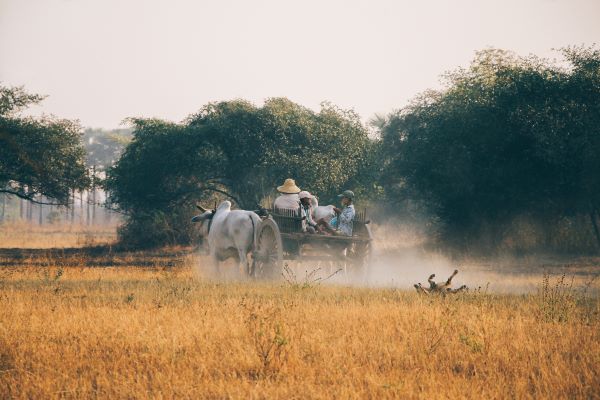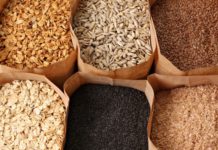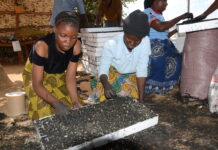The agricultural sector is aging. Fewer people are entering the field, and the young people who do become farmers often learn the trade on their own. However, lacking a mentor can make it harder to acquire the proficiency and passion needed to succeed, which is why access to farming education is so critical. Here are four ways young African farmers can grow their knowledge.
Accessible Farming Programs
One of the best ways to engage young farmers is through agricultural outreach efforts. The West and Central African Council for Agricultural Research and Development (CORAF) empowers youth interested in entrepreneurship, research and agriculture. It provides educational classes, technology training, mentorships and sponsorship opportunities for young farmers in Africa who might otherwise struggle to get their career started.
West Africa has a large number of young people — 63% of the population is under age 25 — and high unemployment rates. CORAF aims to address both of these factors through its outreach efforts. One of its programs, the West Africa Agricultural Productivity Program (WAAPP), teaches youth how to improve the food system, attain agricultural degrees and gain better access to technology.
Programs like these make farming more accessible to people who face societal, personal or educational obstacles to breaking into the field.
Financial Assistance
One of the biggest barriers to becoming a farmer is buying land. Financial assistance programs can help young farmers-in-training acquire property, either by educating them to make better financial decisions, providing grants or both.
For example, the Agriculture Fast Track Fund (AFT) provides funding for food security projects in Africa. It helps defray development costs that could otherwise pose an insurmountable obstacle to new farmers. Once farmers acquire land on which to work, they can begin learning more about agriculture in earnest.
Remote Courses
Although learning to farm requires a large portion of hands-on demonstrations, earning a degree in the field also requires some classroom-based instruction. For example, students can learn about the essential maintenance steps involved in caring for a tractor without risking injuries in the process.
For people without a car or who live in rural areas, obtaining a higher education can feel daunting. Remote classes allow reputable institutions to broaden their reach.
A number of universities offer free agriculture classes on Coursera or other online platforms. A community center or unused space at the local high school can serve as a remote learning classroom, offering lectures on a screen everyone can see. These lectures may be live or recorded.
Rather than hiring a professor to teach the course, a classroom facilitator sets up the virtual lecture and fields any technical problems. A translator can also help address any language barriers in the classroom.
Shared Equipment
Farming equipment can be prohibitively expensive for new farmers. Sharing tractors, plows and other essential tools can help beginning farmers learn to use the equipment before buying their own in the future. Communal tools can teach young farmers how to repair, maintain and operate farming equipment and get started producing food.
Additionally, sharing tools promotes a sense of community and cooperation among burgeoning farmers. This positive social connection can reinforce the desire to get involved in agriculture and help one’s friends and neighbors. It also reassures new farmers that they won’t be alone in their venture.
Empowering the Next Generation of Farmers
Countries that promote farming enjoy higher rates of labor productivity, lower poverty levels and improved job growth in both agricultural and non-farm sectors. With Africa’s population expanding fast, recruiting and training young farmers is key to supporting the burgeoning need for healthy food. There are countless people who want to break into agriculture — they just need someone to show them how.

Jane is an agriculture and environmental journalist and the founder and editor-in-chief of Environment.co, where she covers sustainability and eco-friendly living.








